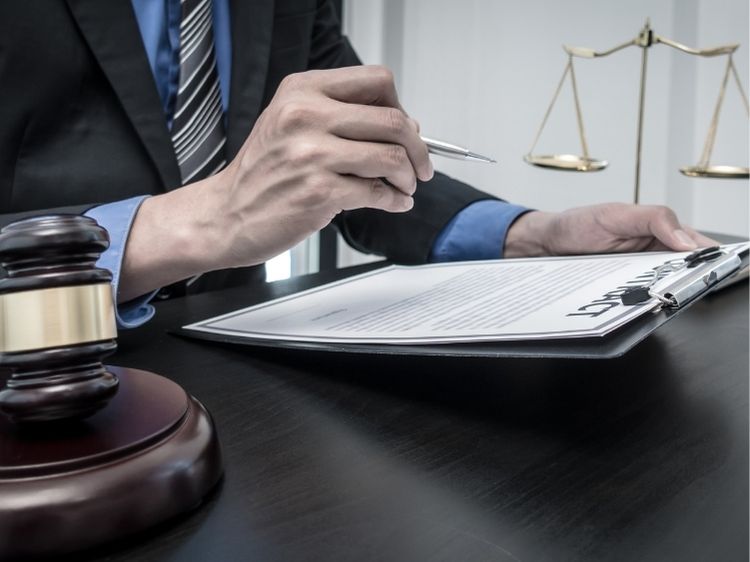Venaseal is a medical device used to treat varicose veins, offering an alternative to traditional vein stripping or ablation methods. The procedure involves injecting a specialized medical adhesive into the affected veins, sealing them shut and rerouting blood flow through healthier veins. While the treatment is marketed as minimally invasive and effective, concerns have emerged regarding its safety. This has led to several lawsuits filed against the manufacturers, primarily alleging complications and side effects that were not adequately disclosed to patients.
In this article, we’ll explore the key aspects of Venaseal lawsuits, the grounds for legal action, and what individuals need to know if they believe they have been harmed by this treatment.
What is Venaseal?
Before diving into the lawsuits, it’s essential to understand what Venaseal is and how it works. The Venaseal closure system is a treatment for varicose veins, a condition characterized by swollen and twisted veins, usually in the legs. Varicose veins can cause pain, swelling, and, in severe cases, more serious health issues like ulcers or blood clots. Venaseal uses a medical-grade adhesive to close off the damaged veins. The procedure is generally quick, with minimal downtime, making it a popular choice among patients seeking vein treatment.
Grounds for a Venaseal Lawsuit
Lawsuits concerning Venaseal often stem from claims that patients were not adequately warned about potential risks or that the procedure caused severe, sometimes permanent side effects. Below are the common grounds on which these lawsuits are based:
- Failure to Warn: Plaintiffs in Venaseal lawsuits frequently argue that the manufacturers did not provide sufficient warnings about the risks of the procedure. This can include anything from allergic reactions to the adhesive to more severe complications such as nerve damage, blood clots, or infections.
- Inadequate Testing: Another claim is that Venaseal was not sufficiently tested for long-term effects before being marketed. Many patients have reported complications months or even years after the procedure, raising questions about the long-term safety of the treatment.
- Misrepresentation of Benefits: Some lawsuits argue that the manufacturers exaggerated the benefits of Venaseal, downplaying the risks and leading patients to believe the treatment was safer or more effective than it truly was.
- Complications from Off-Label Use: Although Venaseal is primarily approved for the treatment of varicose veins in the legs, some healthcare providers have used the product for other purposes. Lawsuits have arisen from off-label use, where patients have experienced complications that the product was not designed to handle.
Common Complications Alleged in Lawsuits
Patients who have filed lawsuits against Venaseal manufacturers often report experiencing one or more of the following complications:
- Severe Allergic Reactions: Some patients have experienced allergic reactions to the medical adhesive used in the Venaseal system, which can range from mild irritation to severe systemic reactions requiring hospitalization.
- Nerve Damage: Nerve damage is one of the most severe complications reported. This can result in long-term pain or loss of sensation in the treated area.
- Infections: Despite claims of being a minimally invasive procedure, some patients have reported infections at the injection site or deeper within the affected veins.
- Blood Clots: Some lawsuits allege that patients developed deep vein thrombosis (DVT), a serious condition in which blood clots form in deep veins, usually in the legs, following the Venaseal procedure.
- Adhesive Migration: In some cases, the adhesive used to close the veins can migrate from the treatment site to other parts of the body, potentially leading to life-threatening complications.
What to Do if You’ve Been Affected
If you or a loved one has experienced complications from a Venaseal procedure, it’s crucial to consult with a healthcare professional to assess the extent of the damage. From a legal standpoint, you should:
- Gather Medical Records: Documentation of the procedure, any follow-up treatments, and the complications you’ve experienced is essential for building a strong case.
- Consult a Lawyer: Finding a lawyer experienced in medical device lawsuits is the next step. They can help determine if you have a valid claim and what compensation you might be entitled to.
- File Your Lawsuit on Time: Like all legal claims, Venaseal lawsuits are subject to a statute of limitations, meaning you only have a limited amount of time to file. Consulting with a lawyer promptly will help ensure your case is filed within this window.
Frequently Asked Questions (FAQs)
- What is Venaseal?
Venaseal is a medical treatment for varicose veins that uses a medical adhesive to close damaged veins. The treatment is less invasive than traditional vein surgery. - What are the common complications associated with Venaseal?
Complications can include allergic reactions, nerve damage, infections, blood clots, and adhesive migration. - How do I know if I have a Venaseal lawsuit?
If you’ve experienced severe complications after undergoing a Venaseal procedure, consult with a lawyer specializing in medical device litigation to assess your case. - How long do I have to file a Venaseal lawsuit?
The statute of limitations varies depending on the state where the procedure took place. It’s crucial to consult with an attorney as soon as possible to ensure your claim is filed on time. - What compensation could I receive from a Venaseal lawsuit?
Compensation may cover medical bills, lost wages, pain and suffering, and in some cases, punitive damages if negligence is proven.
Conclusion
The Venaseal procedure, while effective for many, has posed significant risks for others. Patients experiencing complications that were not disclosed prior to treatment have valid reasons to seek legal action. Whether it’s a failure to warn, inadequate testing, or complications from off-label use, the grounds for filing a Venaseal lawsuit are varied. If you believe you’ve been harmed by the procedure, it’s crucial to seek both medical and legal advice as soon as possible. Proper documentation and legal representation can significantly improve the chances of receiving compensation for the harm caused.
Authoritative Links
- https://www.fda.gov/medical-devices/venous-disease-devices/venaseal-closure-system
- https://www.ncbi.nlm.nih.gov/pmc/articles/PMC4352421/
- https://www.healthline.com/health/venaseal

